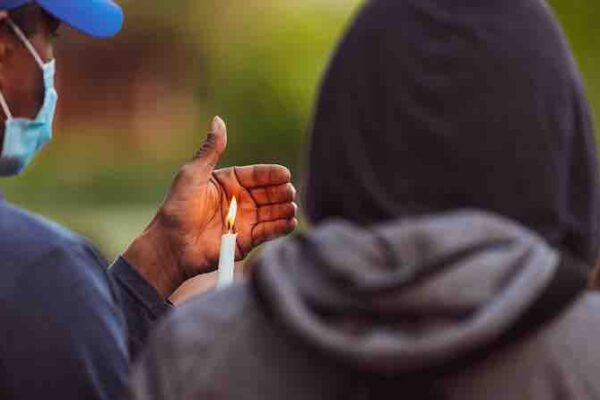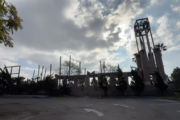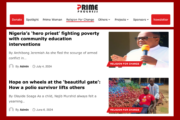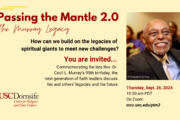How does the Black Lives Matter movement intertwine with healing and spirituality? JSTOR Daily uses CRCC’s Hebah Farrag’s 2018 article “The Spirit in Black Lives Matter: new spiritual community in black radical organizing” as the basis for analyzing how Black Lives Matter activists blend a range of spiritual and healing practices to support their pursuit of justice in an inclusive and holistic manner.
Gershon states:
Farrag writes that many BLM chapters and related groups blend spiritual practices from different traditions to support their pursuit of justice while working to heal grief, trauma, and burnout. She focuses specifically on the Los Angeles group Dignity and Power Now (DPN), founded in 2011 by Patrisse Cullors, who went on to become a founder of Black Lives Matter.
Cullors grew up as a Jehovah’s Witness but left the religion out of dissatisfaction with its patriarchal structure. She converted to Ifá, a religion of West African origin. But, Farrag writes, that faith also has its challenges for Cullors as a queer woman. One Ifá priest refused to initiate her because of her sexuality.
As Farrag relates, over time Cullors embraced practices from a variety of religious and secular healing traditions, including meditation, therapy, and exercise. She also draws on the work of black women like Audre Lorde and bell hooks, who emphasize the inherently political nature of attending to their own physical, mental, and spiritual health.
Read the full article here.
Religion News Service also referenced Farrag’s writings in an article covering a virtual discussion between Black Lives Matter co-founder Patrisse Cullors and Black Lives Matter-Los Angeles co-founder Melina Abdullah. The discussion touched on the role of spirituality and prayer in the movement.
Here is an excerpt from the article:
In a June 9 article,”The Fight for Black Lives is a Spiritual Movement,” Hebah Farrag — assistant director of research at the USC Center for Religion and Civic Culture — examined how Abdullah led a group of demonstrators in a ritual at a recent protest outside of Los Angeles Mayor Eric Garcetti’s home.
As part of the ritual, people recited the names of “those taken by state violence before their time — ancestors now being called back to animate their own justice,” Farrag wrote.
Read the full article here.
Religion Unplugged also wrote about Farrag’s research on the spiritual side of the Black Lives Matter movement:
“The fight for Black liberation has always been a faith movement, and BLM is no different, they are also faith-infused,” said Hebah Farrag, assistant director of research at the University of California Center for Religion and Civic Culture. “It is just a different and newer faith.”
Farrag has been researching the role of spirituality in the BLM movement since 2014. She began her research because of a perceived gap between the narrative surrounding the movement and what it looked like on the ground.
“Reporting focused on the dissent and the protest and clouded the movement in a sense of aggression,” Farrag said. “I was seeing people carrying sage dressed in white. I was seeing ceremony and ritual… and I didn’t see any of that being picked up in the media.”
Read the full article here.







